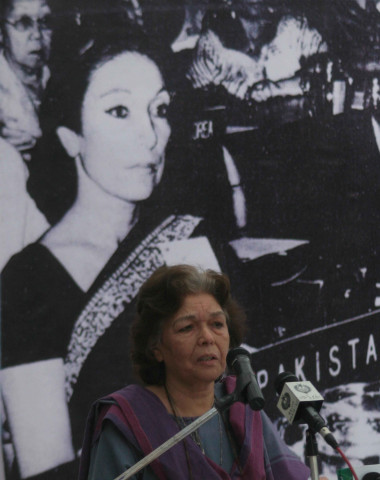Local government polls: Empowering women at the grass-roots
At policy dialogue, more active role for female representatives sought.

Women have valuable opinions beyond their own rights, and this perspective must be included in political decision-making in order to represent all citizens equally,” said Nasreen Azhar
In anticipation of local government elections, much of the discourse in recent months has challenged the laws put forward by provincial governments under judiciary-induced deadlines, including lukewarm lobbying for the greater inclusion of women at the grass-roots level.
At a seminar hosted by Oxfam, in collaboration with several rights and women advocacy groups, party representatives expressed ambivalence over seats allotted to women in the Punjab, Sindh and Khyber-Pakhtunkhwa (K-P).
“Women have valuable opinions beyond their own rights, and this perspective must be included in political decision-making in order to represent all citizens equally,” said Nasreen Azhar, one of the founding members of the Human Rights Commission of Pakistan. For Azhar, reserved seats enable women left behind to carve out their place in the intimidating realm of politics, driven largely through money and influence.

“Participation in local governance enables women to engage with other women, and to work most effectively for the benefit of communities,” said Khawar Mumtaz, chairperson of the National Commission on the Status of Women (NCSW), urging that the 33 per cent seats must be retained in the formation of local leadership and councils, and for more meaningful representation, union councils needed to expand to allow for more than just one female candidate for the sake of symbolism.

“There is a need to treat directly and indirectly elected representatives equally, to give women the impetus to fully participate in the electoral process,” Mumtaz said, explaining that participation in local governance would push more women in the mainstream and give them the opportunity to participate in general elections. MQM MNA Dr Nighat Shakil endorsed this idea, comparing local governance to social work.
According to adviser to the Sindh chief minister, Taj Haider, the role of women in campaigning and governance is indelible, and a 22 per cent quota of reserved seats for women chalked out by the Sindh Government is a bid to push women away from government support, strengthening them to embrace mainstream elections on their own footing. “Individual parties have an inextricable stake in empowering their female members.”
According to Shamim Mumtaz, PPP MPA from Sindh, when women were first challenged to break out of the complacency of their domestic roles during local government elections in 2001, they were unprepared for the responsibilities that greeted them. Over 40,000 women were then recruited to run for elections through training and those who knew nothing about politics grew more comfortable, and empowered in time for the next electoral cycle, she said.

Balochistan and K-P have reserved 33 per cent of seats for women at all levels of local government, while Sindh has no reserved seats for women in union committees and councils, except a condition that one of the elected members should be female. Punjab has reserved one out of 10 seats for women in union councils and 15 in district councils, with 25 women representing a sample of 200 in the metropolitan corporation.
The resolution to bring women within the fold of political representation began in 1982, through the Women’s Action Forum, who demanded that the government must comprise of 33 per cent women to reflect society’s mandate.
“In terms of the political representation of women, Pakistan has proven to be ahead of the rest of the world,” said Oxfam Country Director Arif Jabbar. The idea is to discuss facets of political inclusion for women and how the diverse lenses of political parties could serve to strengthen their effectiveness at the local level, he added.
Published in The Express Tribune, February 19th, 2014.



















COMMENTS
Comments are moderated and generally will be posted if they are on-topic and not abusive.
For more information, please see our Comments FAQ